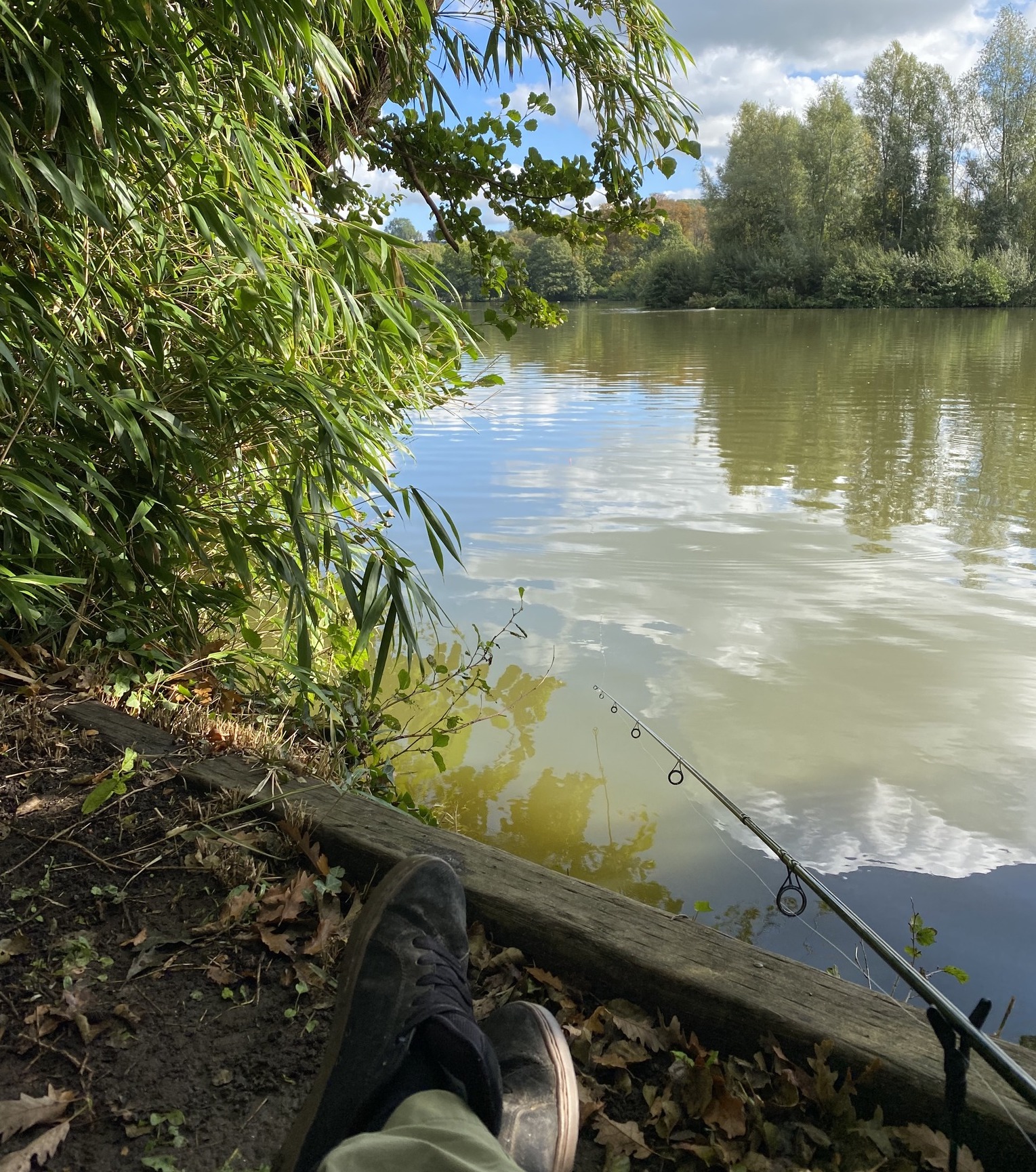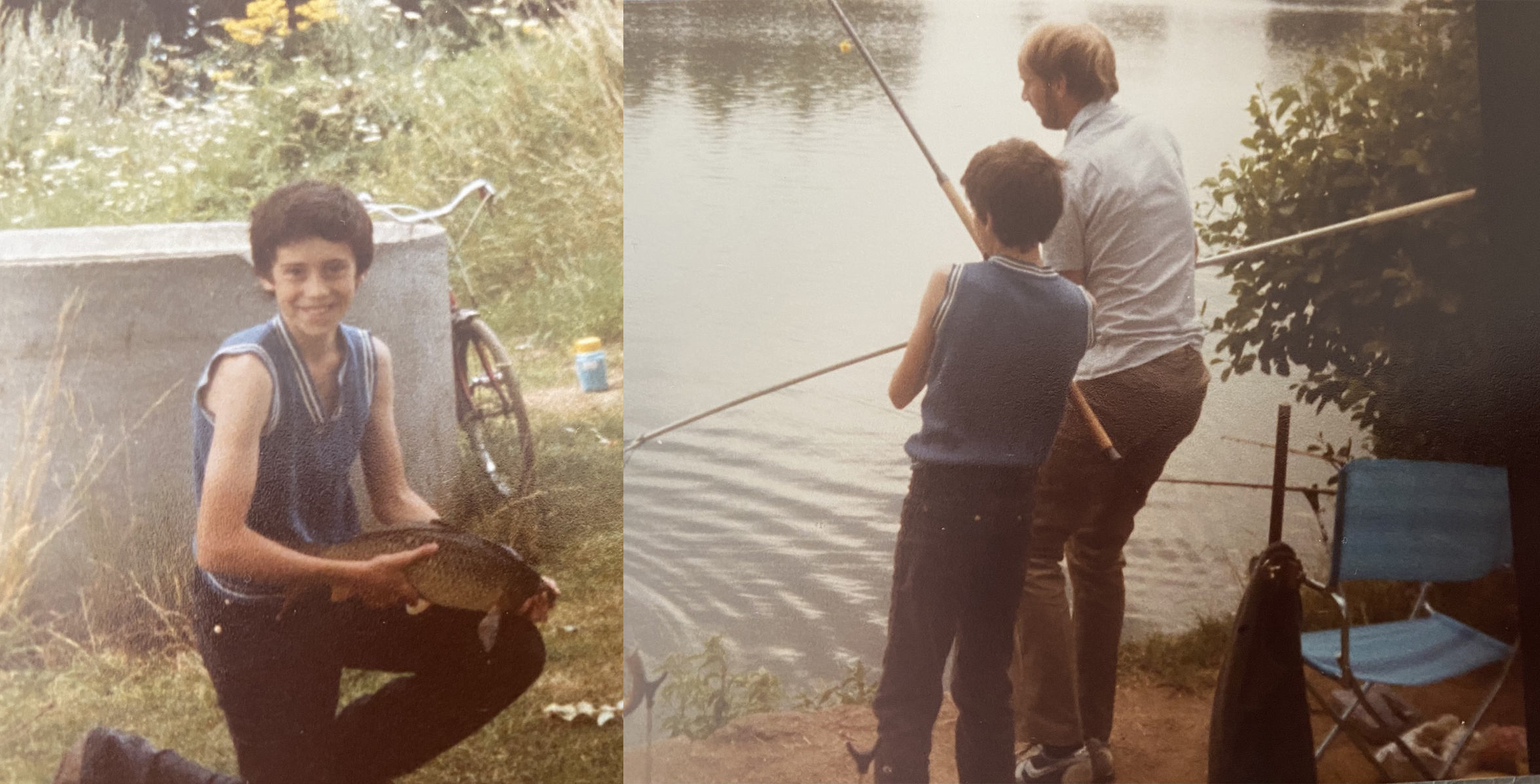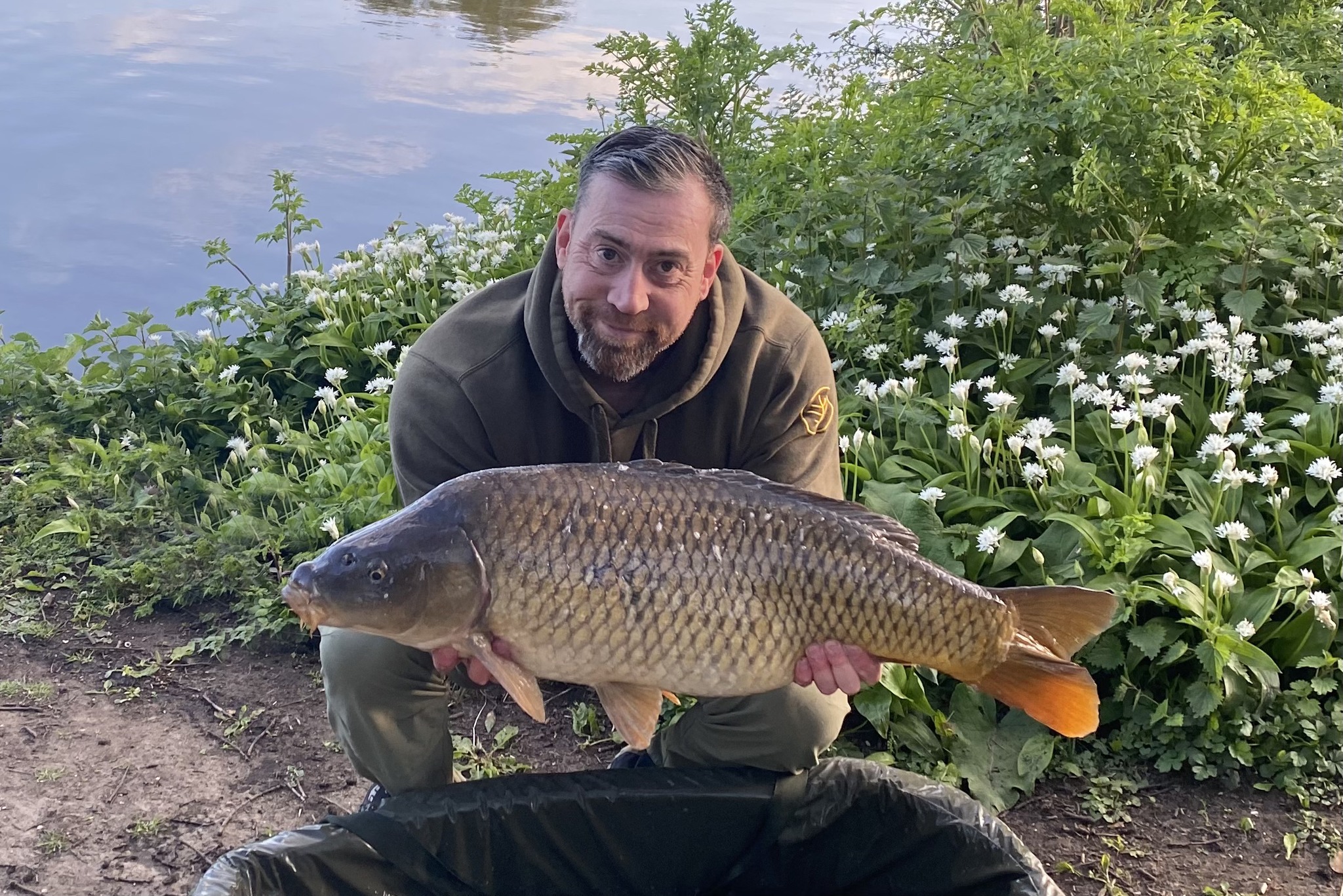When taking the kitchen sink ends up making a fishing session feel like a military operation, it can be good to scale things back and just get back to basics - Wychwood's Darryll Slater gives his take on a more simplified approach to going fishing...
It all started in early 1983, maybe 1984, with my stepdad taking me fishing. Sounds cheesy but from then on in, I was hooked.
To be honest like most carp anglers I know I've got lost in the chase. Maybe not to the extent of some of the guys I know, but in that race on a Friday to get a good swim or area, to catch a named fish or catch more than other anglers, I've kind of forgotten what I really enjoyed about my fishing and why I do it in the first place.
After doing the whole carp fishing cycle I've come back to what fishing is for me - and what it probably was for most of us when we started out - a way of just enjoying my time and catching, spending time with friends and being as happy for them catching as they are for me. Sharing memories and journeys, that's what it's all about, isn't it? This return to angling 'purity' even extends to - dare I say it - catching other species ... maybe I draw the line at bream!
 IMAGE CAPTION: Feet up, float out - keeping it simple really can relax the mind.
IMAGE CAPTION: Feet up, float out - keeping it simple really can relax the mind.
With park lakes and club waters so close to me, they're the obvious choice; the sport is varied, I can be fishing just minutes after shutting off from work for the day, and being on their banks takes me back to those early years when waters like that were THE place to go, long before I even knew what a syndicate was.
Adopting a scaled-back approach doesn't really put too many demands on tackle; I'm fortunate that Wychwood has so many products in the range that it also allows me to have a couple of set ups. Simply pick a bag and rods up and within 15 minutes I’m at the lake and fishing. This is one of the key aspects of ridding yourself of the trappings of the big carp mentality, a cleanse from the stuff you think you need - but often don't - and just focussing on the gear that will get the job done.
My current favourite set-ups are a 12ft FLTR (Wychwood's surface rod), which I use to float fish generally for carp and other specimen-sized fish, and a 10ft Extricator Plus carp rod for when I aim to go after anything a bit more substantial. I do have a MAP DUAL float rod waiting in the wings too for when I want to go super-light (teamed with small hooks and light lines), but it's not essential to have multiple set-ups; choose a rod that injects some fun into playing fish but gives you a chance, especially if you're going after bigger fish.
On the FLTR I have 10lb line on a 5000-sized reel. I generally use a 2.5BB crystal waggler float down to a size 8 hook. That size float is fine for close-range work. This setup is fine for carp that way past the 20lb mark yet I still manage a few big (hungry) roach that are in the lake.
Bait is always subjective and personal but keeping it simple doesn't mean compromising; I tend to use an 8mm pellet as hookbait under the float because it's a resilient bait that's easy to mount and generally sorts out the better fish. Feed 8mm pellets from the start, four or five pinged over the float every few minutes. Also with so many carp in the lake being fed boilies it’s a great alternative. As anglers we are always trying to find that magic formular. So doing something different can often pay off.
 IMAGE CAPTION: Back in the '80s - the fishing bug has stuck with Darryll, the fashions maybe not so much!
IMAGE CAPTION: Back in the '80s - the fishing bug has stuck with Darryll, the fashions maybe not so much!
The 10ft Extricator Plus rod goes on a bobbins and alarm sleeper setup down the side and out of the way. A PVA bag of pellet and a simple bottom/wafter rig are always a great start - go with what suits the conditions, be it a pop-up or a bottom bait depending on the lakebed. The park lake is very clean, no weed, with only a little leaf detritus in the fall. I treat this as my bonus fish rod, so cast every 30 to 40 minutes. If it goes, I’m rewarded, but I’m more focused on the float. By the way, you don't need PVA - I just prefer to use it because it does create a much tighter feed area, especially if you’re fishing for 1 bite at a time. If you're not confident with PVA or just want to go things a bit more traditional, then a throwing stick or catapult can be used if you can guarantee creating a feed zone around where the rig is positioned.
When looking at where to fish the float, I tend to find a swim with good cover is best; overhanging trees, vegetation such as lilies, reed beds, these are all places fish might patrol. To just create a better picture in my mind of what the bottom is like, I will often underarm heavier lead setup out past the spot I intend to fish with the float, giving it a pull back and feeling the lead across the bottom of the lake. If the line is clear of beris you know it’s a decent area that won’t v cause problems, as often on these types of water, branches and twigs fall into the water and they can be a nuisance.
Get this part of the session right and you’ve mad life a lot easier for yourself; as with any form of fishing, knowing what you’re fishing over breeds confidence. It also means you can get into the action quicker because there’s less trial and error. On mixed-species waters I tend to use silver fish as an indicator; you know you have the feeding correct when the big roach will compete with the carp, as one minute you are pulling in hand-sized roach and the next, playing a 20lb-plus carp! Don’t be surprised if a bonus tench, rudd or perch shows up either, they always brighten up the session.
What to do if things are slow? It happens but I do find I’ve fallen into the bad habit of trying to ‘make it happen’ sometimes, when the swim just seems really slow to get going. Some days that’s just how it goes – if others are struggling it can be down to conditions or is weather-related – and others it’s possibly a sign that you need to cut your losses and head to another likely spot. Over time at a venue, like any form of fishing, you start to build up a picture of the lake through experience. Knowing when to move is part skill, part hunch but regardless, fishing with minimal gear makes the decision to switch swims so much easier. Ultimately, never be scared to move just because you have put bait in. You can always come back later that day, or even the next.
 IMAGE CAPTION: That's what it's all about - catching fish, feeling good, taking it easy.
IMAGE CAPTION: That's what it's all about - catching fish, feeling good, taking it easy.
All-in-all, the joy of the park lake is simple; I get to enjoy my surroundings and when I catch a carp you often get to share this enjoyment with the walkers and kids who come down to feed the ducks. This is probably the biggest fish they have ever seen, so getting them to touch or come and see the fish is key. Big smiling faces and then they get to see you return the fish unharmed. You never know, that could be their gateway into picking up a fishing rod, and they also come in handy for photos – getting people to take a photo, even if it’s not the most flattering angle, gets them involved and you can spark up some great conversations. It’s not about perfect pictures for me anymore, it’s about memories. An album of the same pose, with similar fish, for me isn’t the appeal.
Watching a float as the world goes by, working the swim, but relaxing at the same time, that’s what fishing is about for me. The rods and myself are never motionless. Just ready, waiting for that float to dip and the wonder of what might be on the end. The view may change from time to time, but my passion continues to grow with every cast.

